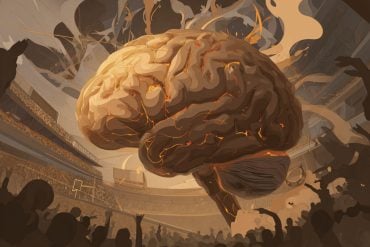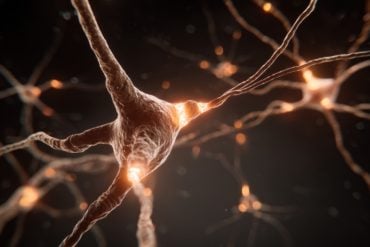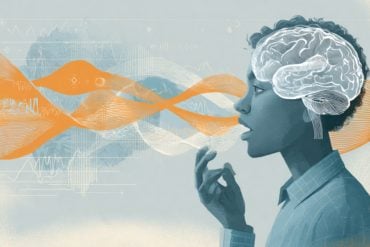Summary: Changes in sleep patterns in older men have been linked to an increased risk of cognitive decline, researchers report.
Source: Flinders University
Men aged 65 and over should monitor their sleep patterns and seek medical advice after a warning from Flinders University experts that disrupted slumber can be linked to cognitive dysfunction.
In a new article published in the Journal of Sleep Research, the Adelaide Institute for Sleep Health research group studied a group of 477 middle-aged and older men’s attention and processing speed in relation to their sleep.
The participants from the Florey Adelaide Male Ageing Study undertook cognitive testing and a successful sleep study.
“Less deep sleep and more light sleep is related to slower responses on cognitive function tests,” says lead author Jesse Parker.
“While obstructive sleep apnoea itself is not directly related to cognitive function in all men studied, we did note that in men aged 65 and older, more light sleep was related to worse attention and processing speed.”
Senior author of the study, Flinders Associate Professor Andrew Vakulin, says the results suggest that day-to-day activities that rely on optimal attention and cognitive speed such as driving, physical activities and walking might be affected by the encroachment of poor sleep.

Medical Director of the research group, Professor Robert Adams, says decreasing deep sleep as people age is associated with cognition. This emphasises the importance of ongoing research looking at ways to stimulate deep sleep as a means of slowing cognitive decline with age.
Further longitudinal investigation is needed to connect poor sleep and sleep apnoea with future changes in sleep patterns and cognitive decline as well as general microarchitectural changes in older people’s sleep patterns.
Funding: The study was supported by the NHMRC (Project grant 627227), Hospital Research Foundation and ResMed Foundation.
About this sleep and cognition research news
Source: Flinders University
Contact: Jesse Parker – Flinders University
Image: The image is in the public domain
Original Research: Closed access.
“Sleep macroarchitecture but not obstructive sleep apnea is independently associated with cognitive function in only older men of a population-based cohort” by Andrew Vakulin et al. Journal of Sleep Research
Abstract
Sleep macroarchitecture but not obstructive sleep apnea is independently associated with cognitive function in only older men of a population-based cohort
Evidence linking obstructive sleep apnea with cognitive dysfunction predominantly comes from clinical or select community samples. We investigated the independent cross-sectional association of obstructive sleep apnea and sleep macroarchitecture parameters with cognitive function in unselected community-dwelling middle-aged and older men.
Four hundred and seventy-seven Florey Adelaide Male Ageing Study participants underwent successful home-based polysomnography. They also completed cognitive testing, including the inspection time task, Fuld object memory evaluation, trail-making test A and B, and mini-mental state examination.
Multivariable regression models examined independent cross-sectional associations of obstructive sleep apnea and sleep macroarchitecture parameters with cognitive function. In univariable analyses, a higher apnea–hypopnea index and percentage of total sleep time with oxygen saturation <90% were associated with worse trail-making test A performance (both p < .05). A higher apnea–hypopnea index was also associated with worse trail-making test B performance and slower inspection time (both p < .05).
In adjusted analyses, obstructive sleep apnea and sleep macroarchitecture parameters were not associated with cognitive function (all p > .05). In age-stratified analysis in men ≥65 years, greater stage 1 sleep was independently associated with worse trail-making test A performance, whereas greater stage 3 sleep was independently associated with better trail-making test A performance (both p < .05). Our findings suggest that obstructive sleep apnea is not independently associated with cognitive function. In older, but not younger, men, light sleep was associated with worse attention, whereas deep sleep was associated with better attention.
Longitudinal population-based cohort studies are needed to determine if obstructive sleep apnea and disrupted sleep macroarchitecture independently predict prospective cognitive dysfunction and decline.






